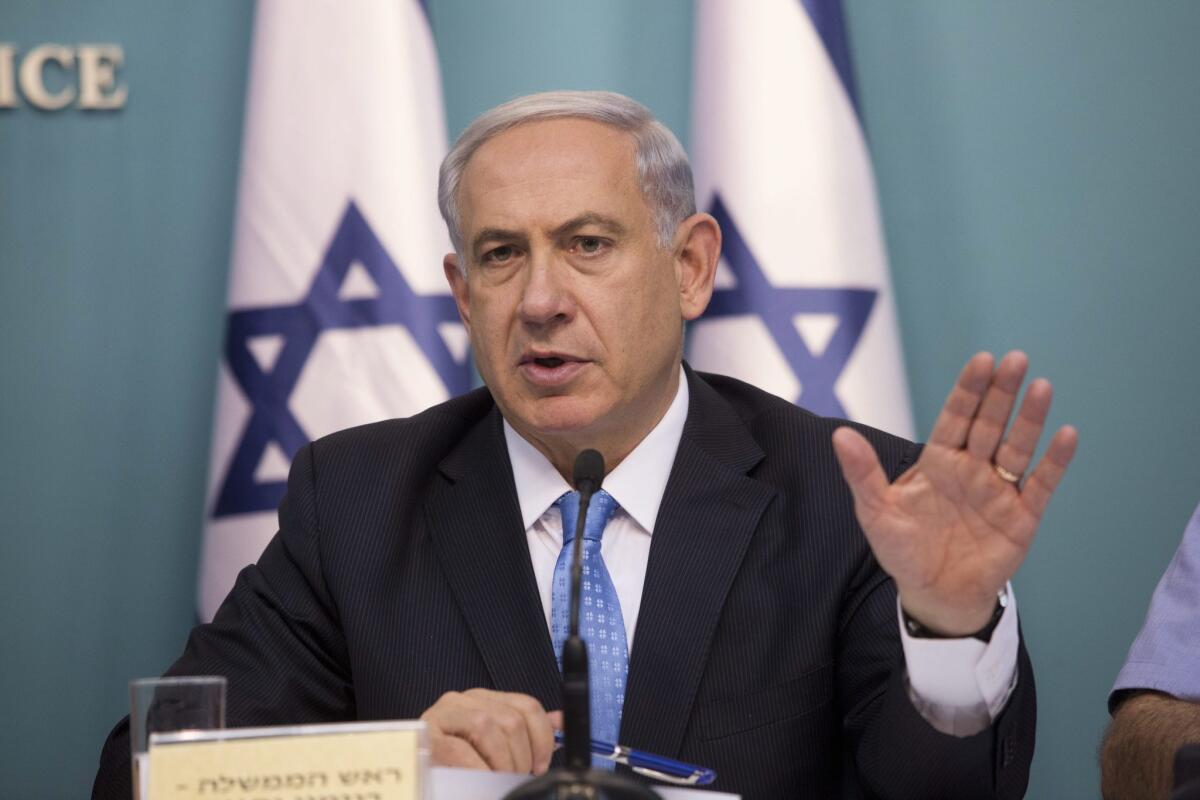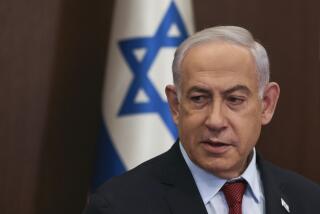Israel faces third election in less than a year after attempt to form government fails — again

Embattled Israeli Prime Minister Benjamin Netanyahu on Wednesday won at least a temporary political respite after his main rival to lead the country failed in a weeks-long bid to form a coalition government — a task Netanyahu also could not accomplish.
But the prime minister is still expected to be indicted on corruption charges any day and the country now faces the likelihood of new elections, which would be an unprecedented third national vote in less than a year.
After centrist politician Benny Gantz announced Wednesday that he could not muster the parliamentary backing for a new government — a task at which Netanyahu had failed twice — the country was again thrown into political limbo.
There will be a three-week period during which any lawmaker — Gantz and Netanyahu included — can try to build a governing coalition. Failing that, new elections will take place, probably in March 2020.
Staying in office has been Netanyahu’s overriding goal since corruption scandals began closing in on him. He could fight the accusations while in office — Israeli law does not require prime ministers to resign if charged, although no sitting leader has been — and try to use his leadership post to engineer legal immunity.
Gantz, leader of the centrist Blue and White party, gave up his bid late Wednesday to assemble a majority in the 120-seat Knesset, informing President Reuven Rivlin he would not make a midnight deadline. Rivlin, who had given Gantz the mandate to try to cobble together a coalition, said he would formally notify the parliament speaker Thursday.
As the final hours ticked down to Wednesday’s deadline, Rivlin pressured Gantz and Netanyahu to form a “national unity” government to break the deadlock and avoid yet another election. Rivlin suggested that Gantz and Netanyahu could alternate serving as prime minister, with Netanyahu promising to step aside if indicted.
Gantz’s party got a slightly larger vote share than Netanyahu’s in a September election, but neither came close to the parliamentary majority required to form a government. The former military chief, who ruled out allying himself with a party whose leader was under indictment, blamed Netanyahu for the stalemate.
“Most of the people chose a liberal unity government headed by Blue and White,” Gantz told reporters, saying the prime minister had not “come to terms” with the vote outcome.
Earlier Wednesday, former defense minister and political kingmaker Avigdor Lieberman, who heads a smaller party, refused to endorse either Gantz or Netanyahu, basically dooming prospects for breaking the deadlock.
For Netanyahu, a longtime political survivor, Wednesday’s events marked the latest tense chapter in his attempts to cling to the post he has held for 10 years. His already fragile position is complicated by the indictments he faces, which could disrupt coalition negotiations taking place in coming weeks.
In February, Atty. Gen. Avichai Mandelblit announced his intention to charge Netanyahu on several corruption counts, including bribery, fraud and breach of trust. That could happen any time now.
After the Sept. 17 election, Rivlin gave Netanyahu the first shot at forming a government, even though he finished slightly behind Gantz. But he failed, as he had after the April election.
With Gantz’s decision to give up the government-forming mandate, lawmakers have 21 days to jockey for position to see if any of them can draw the backing of a majority. That means both Gantz and Netanyahu can keep trying as well, but there are many obstacles.
Netanyahu has repeatedly urged Gantz to ally with his Likud Party. But Gantz ran on a clean-government platform and pledged never to serve with an indicted prime minister. Likud loyalists have shown little inclination to push out Netanyahu as their party leader.
Gantz has accused Netanyahu of allying himself with far-right and religious parties to try to shield himself legally and has urged the prime minister to cut those ties. Still the Blue and White leader expressed hopes that a deal could be struck in the next three weeks, promising to take part in any “substantive” negotiations.
Another source of tension is Netanyahu’s concerted campaign of incitement against the Joint List, a party representing Arab citizens of Israel, who make up about 21% of the electorate. With the prospect of the party supporting Gantz, Netanyahu denounced its leadership as a “fifth column,” “supporters of terror” and “an existential threat to the existence of Israel.”
That drew a sharp rebuke from Rivlin, who is a member of Netanyahu’s Likud. The president said such accusations leveled against Arab elected officials “must be emphatically denounced.”
Times staff writer Laura King in Washington contributed to this report.
More to Read
Start your day right
Sign up for Essential California for news, features and recommendations from the L.A. Times and beyond in your inbox six days a week.
You may occasionally receive promotional content from the Los Angeles Times.





